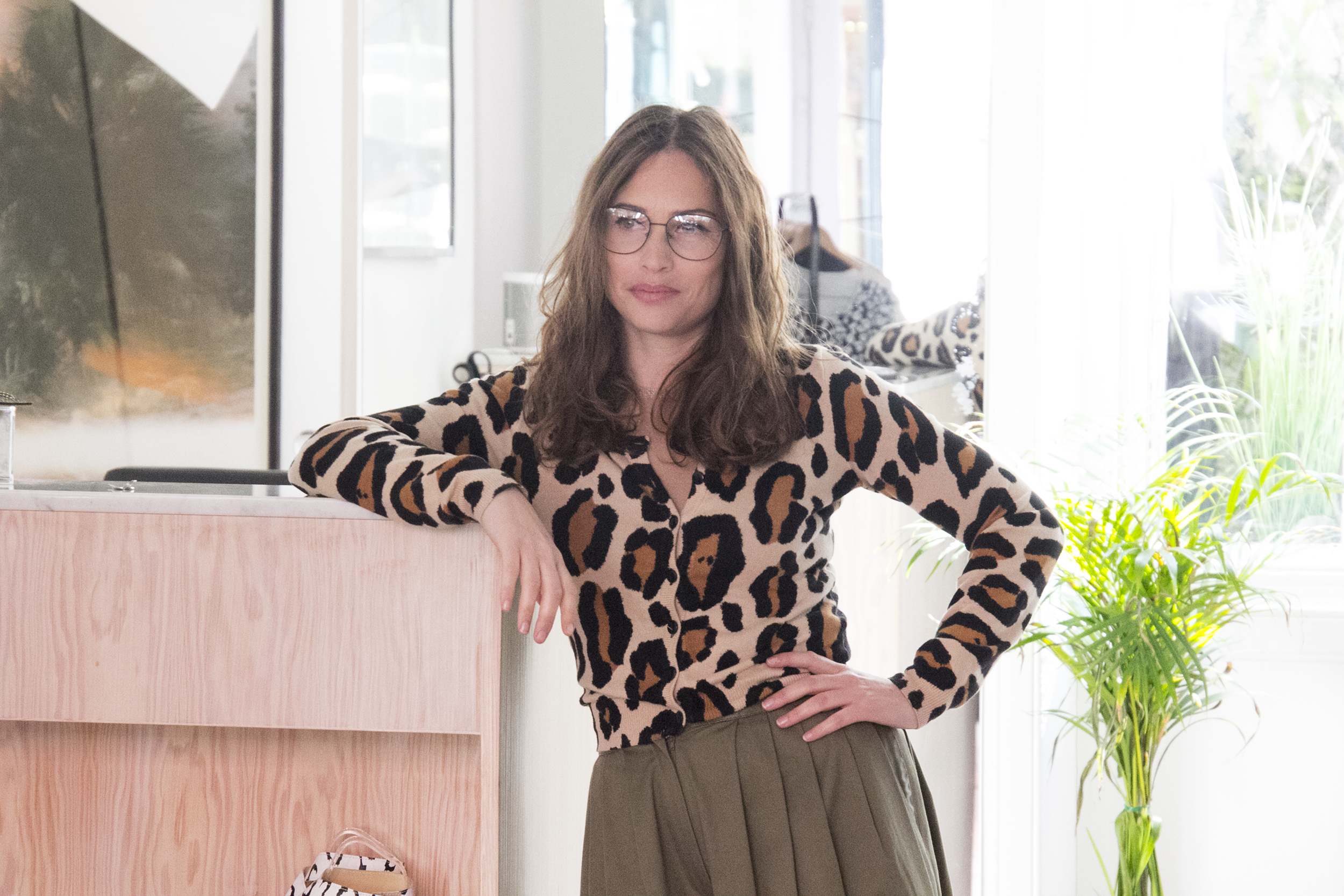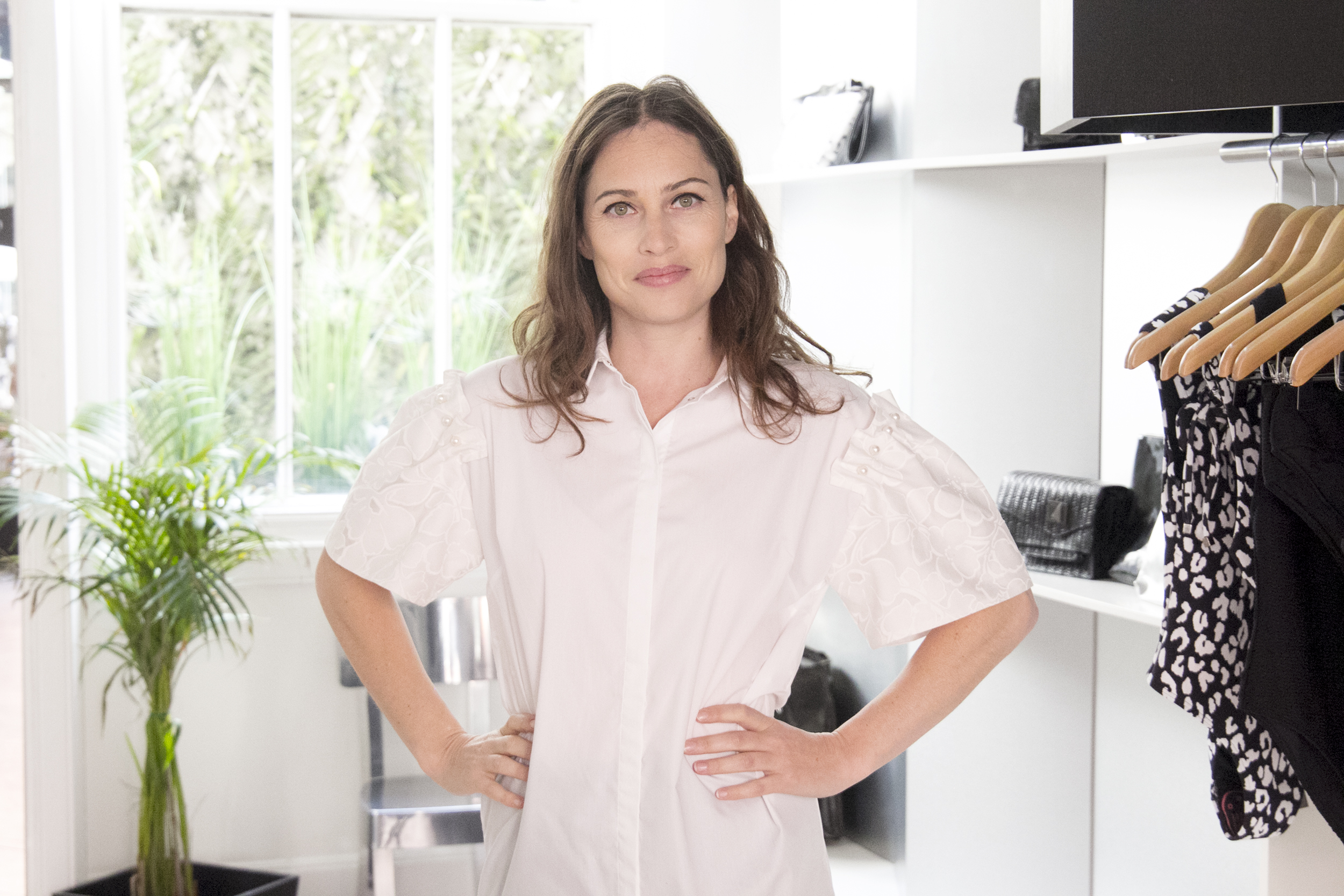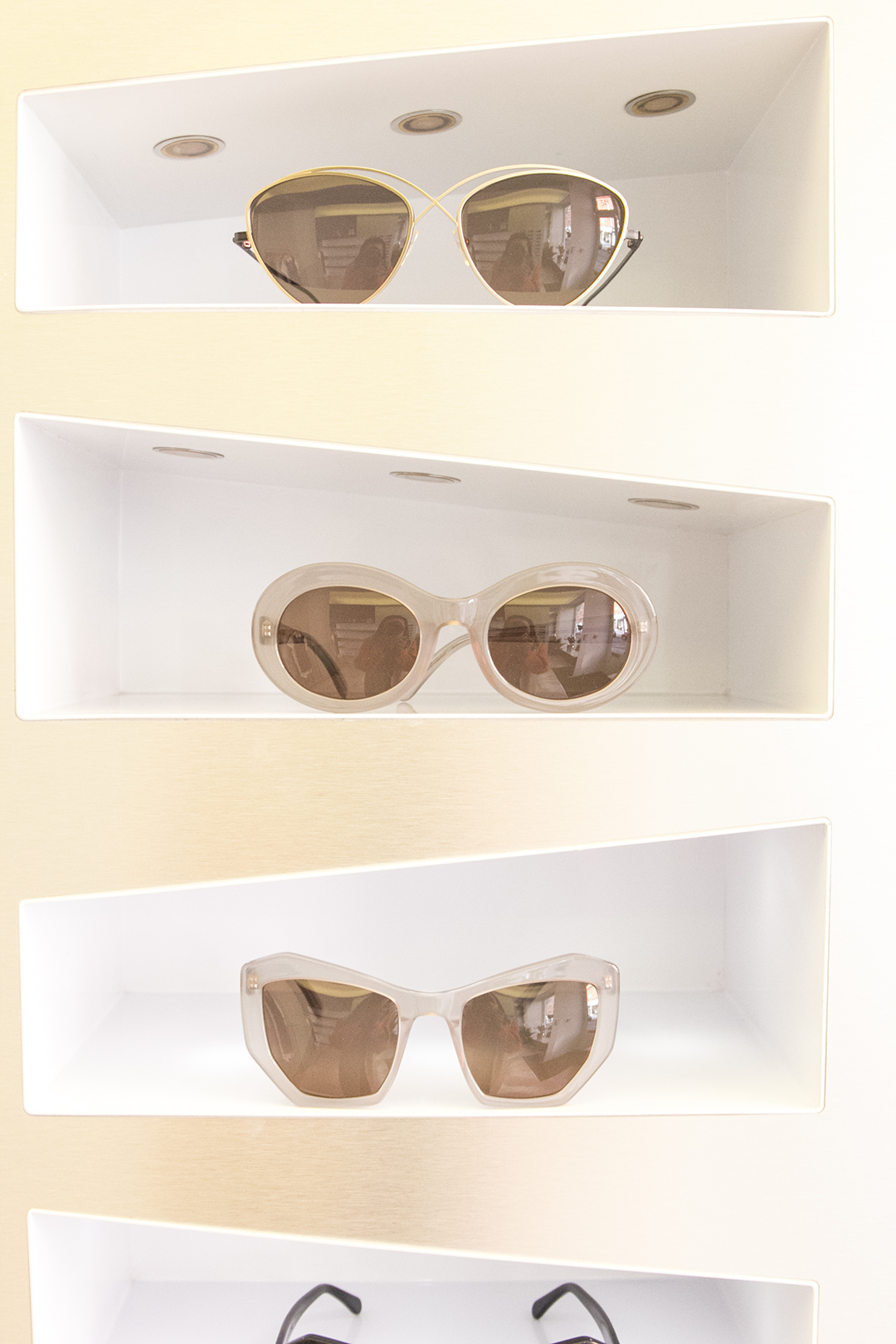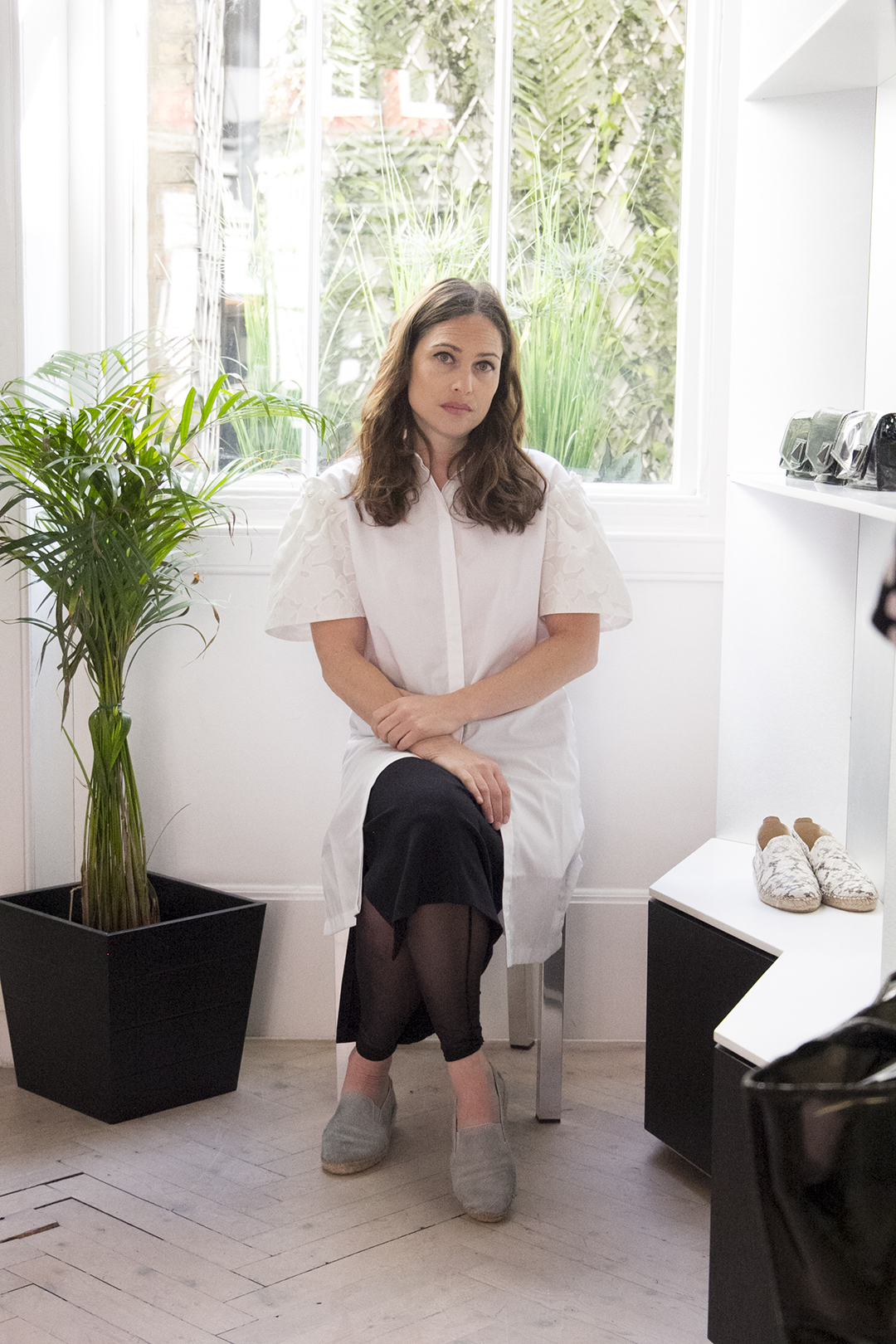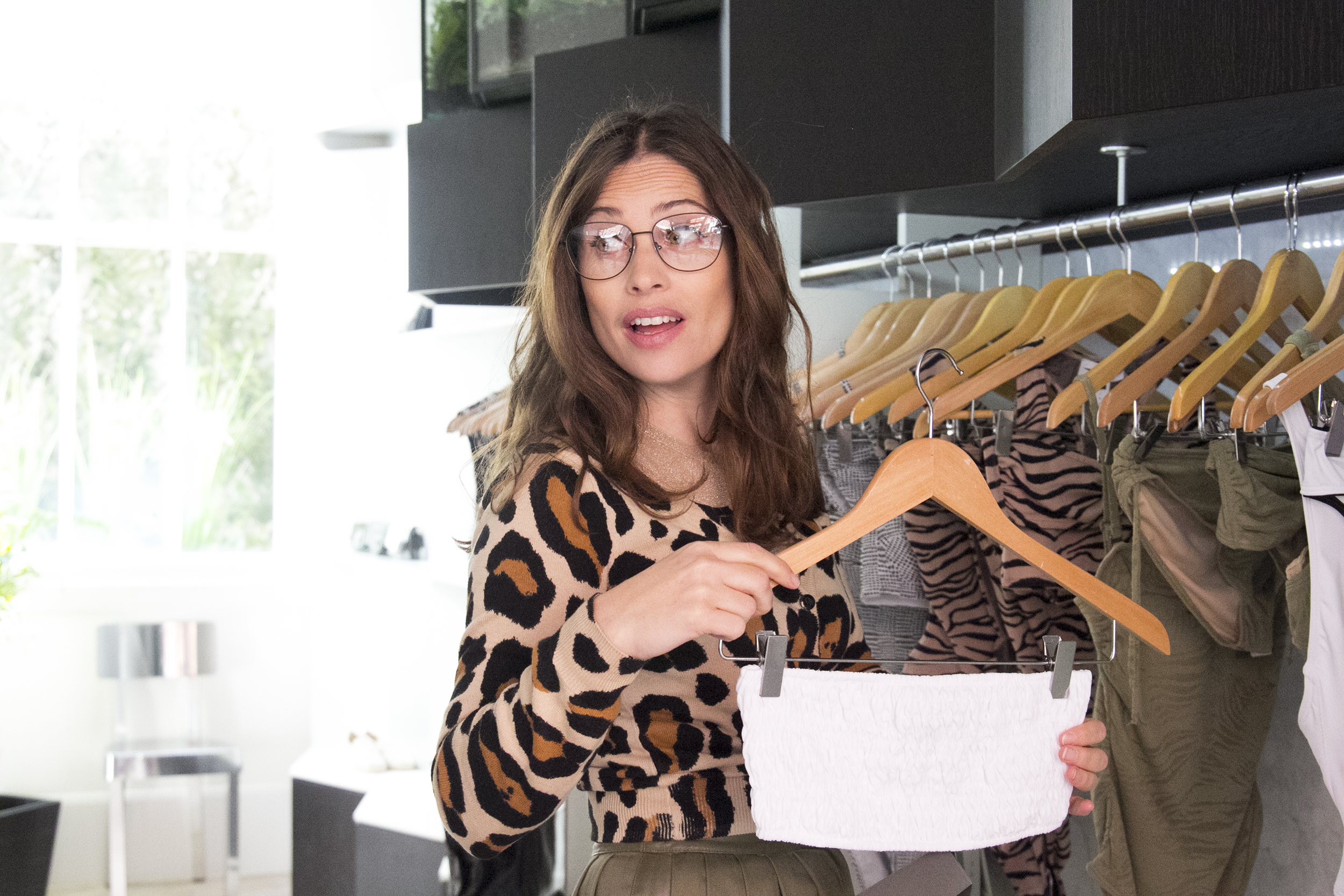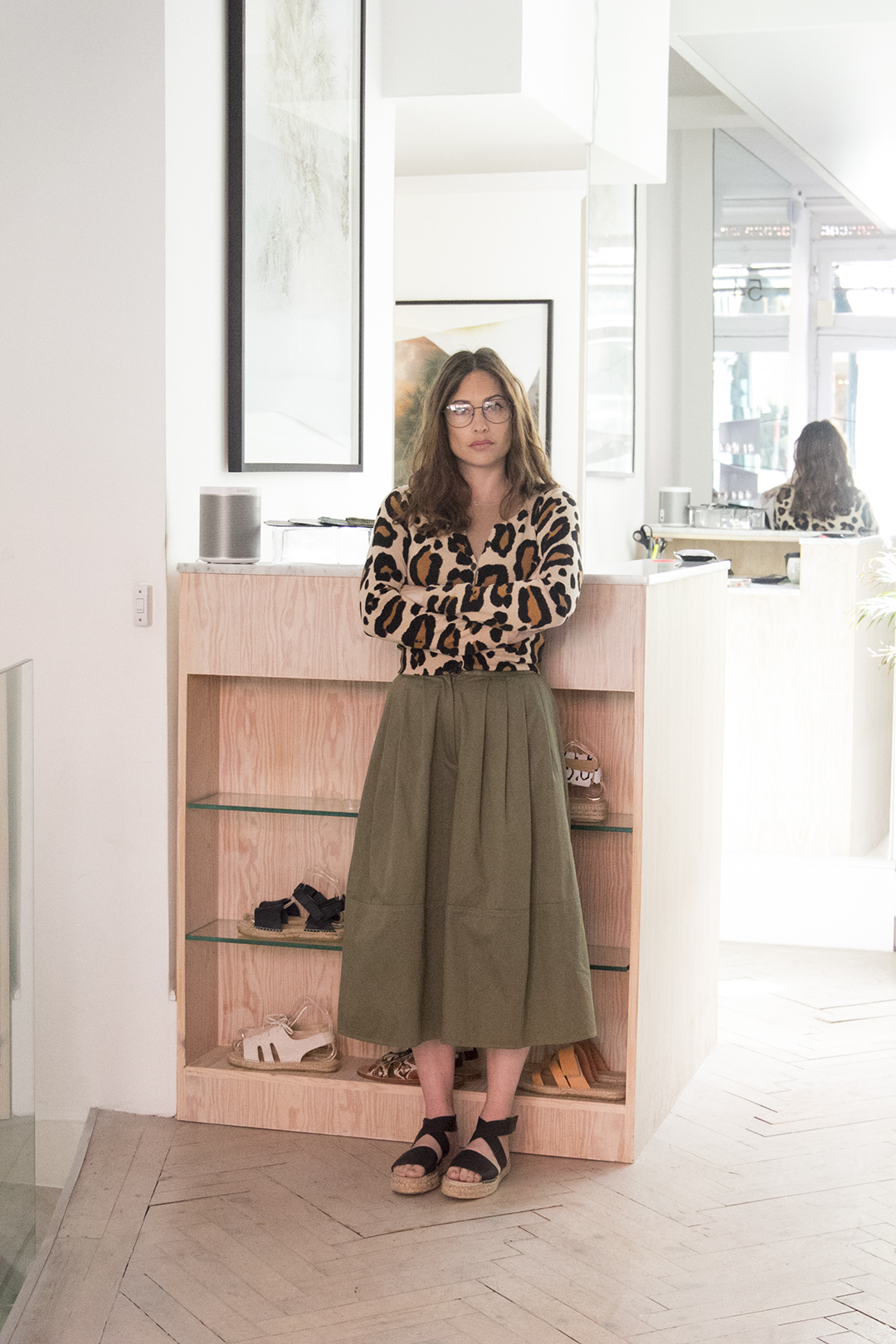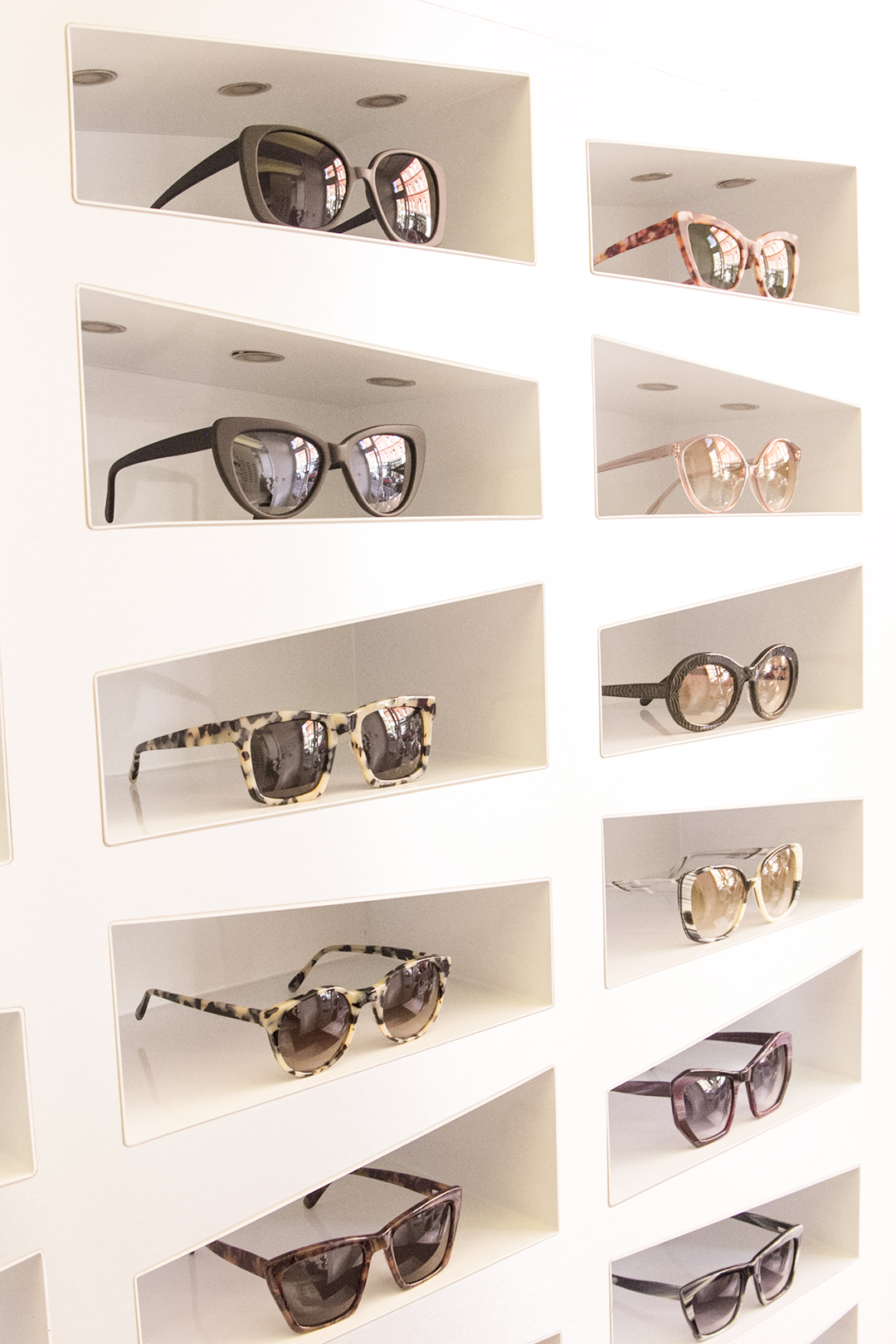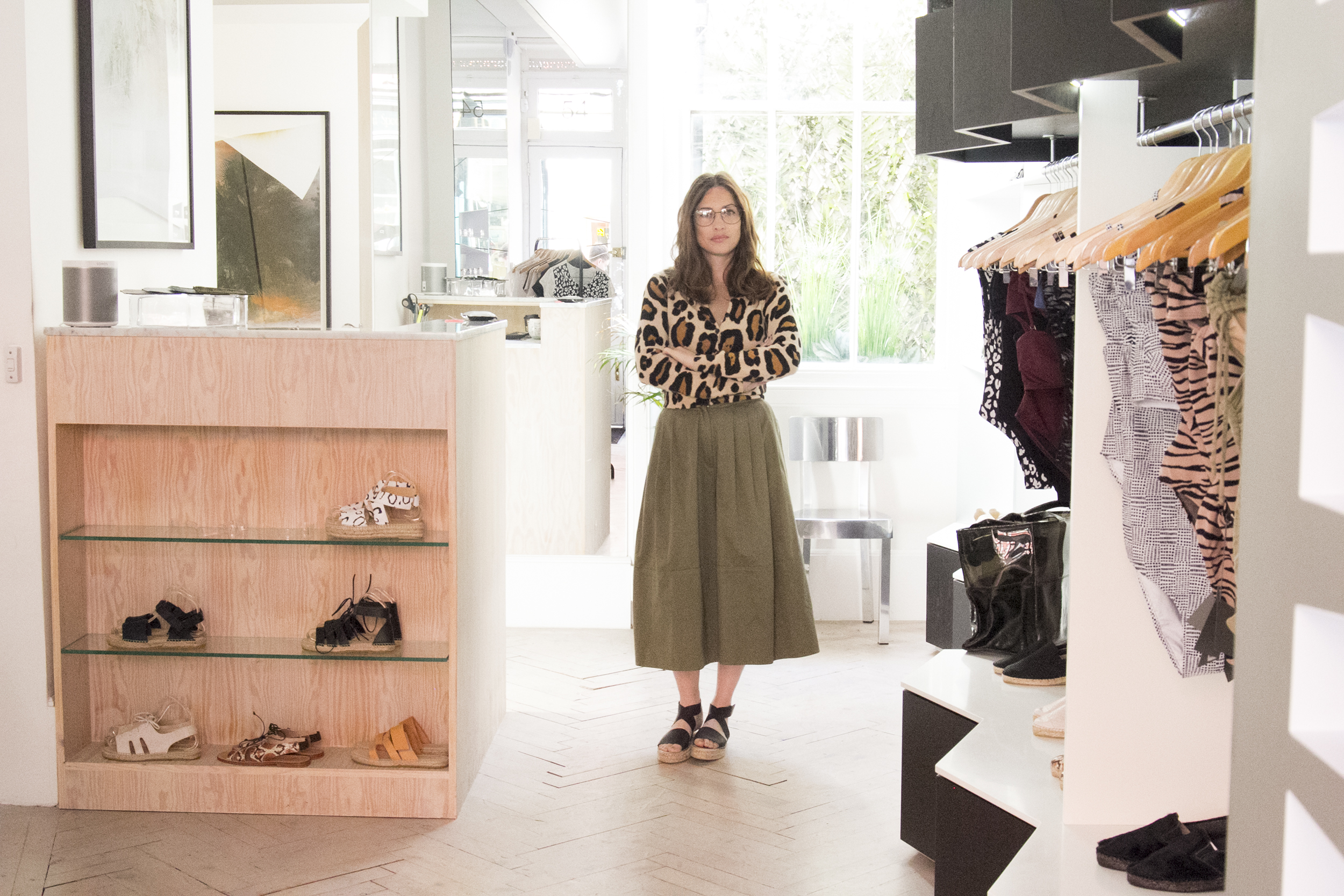I could have done that.
How many times have you had that thought as you’ve strolled around a new exhibition or picked up a friend’s latest work? It’s easy to sit on the sidelines and daydream in, casting judgement without risk or reward. Of course, you might have been able to do it, but what keeps you at the other side of the lens is simply the act of doing. That’s the differentiating factor.
Anna Laub is a model-turned-journalist-turned-editor-turned-entrepreneur—she launched Prism, a luxury eyewear label, in 2009. “I started with eyewear, because I was looking for optical glasses that I really liked,” Anna explains. “It seemed strange that for something you wear on your face, and something that some people wear every single day, there wasn’t much choice.” Like so many other small businesses, the initial stages of brand building began as a side hustle to Anna’s full-time role as Head of Content at WGSN. “It just started to take over,” she says of the decision to focus her time solely on the brand, “It just started to have a life of its own.”
Anna is a self-starter, and despite the label’s assent to cult status, she’s resisted pressure to grow too big, too fast. “I invested a small amount in starting my own business,” she tells us. “At the moment I still own my own business, but it’s difficult to achieve huge, fast growth without big investment,” she explains. “But, it does mean you have to learn to balance the books and achieve organic growth on your own, which I think at the beginning is definitely better and gives the business a more natural path.”
We sat down with Anna and talked to her about how she juggles motherhood with running her own business, how she really dialed down the branding of Prism, and why she thinks LA is the future for lifestyle product and businesses like her own.
Meet Anna Laub.
HOW PRISM CAME INTO BEING: I didn’t really decide to stop working in editorial. Prism just took over and I didn’t have time for anything else. It started as a side project while I was at WGSN and then while I was editing O magazine. It just started to have a life of its own. I started with eyewear because I was looking for optical glasses that I really liked, that I was excited about wearing and there wasn’t much being offered in the market at the time. From my perspective, it seemed strange that for something you wear on your face, and something that some people wear every single day, there wasn’t much choice. And it seemed strange to me that people spend way more time, effort and money finding shoes or a bag than something that is the first thing you see when you look at someone. I also liked the idea that a functional product could also be beautiful and have as much thought put into its design as anything else. It seemed like a given to me.
ON HER EASY-GOING APPROACH TO GROWTH: Expanding into new categories has happened organically. It all comes from me experimenting and people seeing me wear something and asking for them. For example, Dover St Market and Colette said their customers were coming in and asking for the optical frames as sunglasses. I was already wearing them as sunglasses so it seemed pretty organic to make them. Swimwear was something I always wanted to do and it made sense with the sunglasses – it was a category I thought of in the same way as optical, as in a product that should be functional but also minimal, toned down and luxury. Espadrilles came out of a collaboration with Opening Ceremony – and then I started experimenting with leopard suedes and pony and buyers saw me wearing them, loved them and started ordering them like crazy.
SHE SPENDS MORE TIME ON NUMBERS THAN ON CREATIVE: It’s definitely more cash flow, hiring staff and managing people now. I made a bit of money modelling and I invested a small amount in starting my business; on the first samples and packaging. At the moment, I still own my business but it is difficult to achieve huge, fast growth without a big investment. But it does mean you have to learn to balance the books and achieve organic growth on your own, which I think at the beginning is definitely better and gives the business a more natural path.
ON HOW TO LAUNCH EFFECTIVELY: I think that having a very clear vision of what you want to make, what you want to stand for and all your branding, positioning and visuals is very important. After that, the price points you set and the name are also all very important – these are things you can’t change once you set them. The market now is very different to how it was seven years ago when I started. Then, if you worked with the right stores, they did all the work for you promoting your brand and positioning it well. Now I don’t think wholesale partners have the same loyalty or importance. If you start a brand today, you can market and distribute yourself just using your own website and a small marketing budget if you are super creative and inventive about getting your message out there.
THE IMPORTANCE OF CURATION IN STANDING OUT FROM THE CROWD: I think there is just so much information out there now and we are constantly bombarded with imagery and product everywhere. To filter out the noise I think people end up trusting a few voices to give you the info you want, to save time. Prism stands for luxury, hand-made, hand-finished product. Everything about our product is beautifully made – function is paramount – and equal to the fashion component. All the materials we use are unique and usually developed exclusively for us. We pride ourselves on making minimal, understated elegant pieces – being fashion forward without being over the top and making sure they are the most comfortable, functional products they can be.
WHY BRICKS & MORTAR STORES AREN’T DEAD: We do similar sales in store and online, but we are growing online – and there is a bigger pool of customers online as it’s global. But people really do omni-shop – they will come into the store, look at the product, try stuff on and then go home and buy online or they will research online and then come in store to try on the final choices and buy there – so it is a kind of dual process a lot of the time – one supports the other.
ON LAUNCHING HER SECOND STORE IN LA & HOW TO CREATE A STRONG BRAND IDENTITY: I think you just have to be clear from the beginning about what you want and to see your store as a kind of canvas for your product. Also with a store, you have to be very aware that you don’t want it to date. In five years, I want to walk in there and still feel it looks as cool as when we did the fit out for the opening. LA is the future, especially for products like mine. I feel a lot of fashion movement from NY to LA. The standard of living is better and the lifestyle definitely suits the Prism brand – it’s very laid back, minimal style and all about the sunshine. The concept is the same but it is a slightly bigger space with a more lifestyle feel – the focus is almost more on the beachwear side of things than the glasses. It is a full head-to-toe summer concept. And I love that it is in the centre of a new, curated community of other exciting brands, most of which are also new to LA.
MASTERING THE ART OF JUGGLING: I’ve always done my own thing – before I worked at WGSN, I started a bilingual magazine called Pure. And when I was at WGSN I was travelling so much and doing lots of other projects. The only difference is that with your own company the responsibilities follow you everywhere, when on holiday, over the weekends – you basically never stop working. Delegating is hard, especially if you are a bit of a control freak and a perfectionist and even more so in a small business where you can’t afford very senior members of staff. But when you do have valuable staff, it’s good to train them up properly, check in with them lots but also listen to them and let them do their thing. Yoga helps me balance it all, when I can find the time. I am also trying to start meditating. I think it definitely helps train your mind and focus. It’s all a balance – managing the day to day has a life of its own – it’s constant and never stops. Future planning is a must and I definitely recommend allocating time for it. I prioritise it more and more. I now make sure I make time for this weekly.

